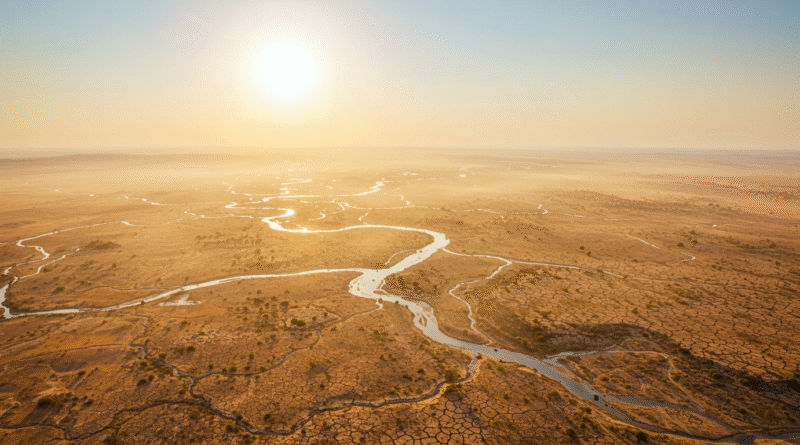Earth Hottest Years on Record
Earth Just Broke Another Heat Record
Imagine waking up to the news that the past two years have been the hottest in human history.
Not just hot in one city or one country—but everywhere, across oceans, deserts, forests, and cities. That’s the reality today.
The American Meteorological Society’s (AMS) State of the Climate 2024 report confirmed what many of us feared: global warming is no longer creeping—it’s racing forward.
Greenhouse gases like carbon dioxide and methane are building up in the atmosphere at record levels, trapping more heat than ever before.
And while this sounds like a faraway problem for polar bears or melting glaciers, the truth is that Africa is on the frontline of this crisis.
The Earth’s Hottest Years Alarm—2024’s Record-Breaking Year
The AMS report paints a clear picture: 2024 was not just another hot year—it was a year of broken records. Carbon dioxide (CO₂) levels reached about 422.8 parts per million (ppm). That’s more than 50% higher than before the Industrial Revolution.
The oceans recorded their highest temperatures in 171 years, with heat reaching depths of up to 2,000 meters. Global surface temperatures were between 0.63°C and 0.72°C above the 1991–2020 average—making it the second year in a row of never-before-seen heatwaves.
Sea levels continued their upward march, rising for the 13th consecutive year. Think of it this way: the Earth’s “fever” is not cooling down—it’s getting worse each year. And when the planet heats up, weather patterns shift, storms intensify, and food and water systems get disrupted.
Africa’s Reality—Heatwaves and Extreme Weather
So what does this mean for Africa? A lot. According to the World Meteorological Organization’s (WMO) 2024 Africa climate report, the continent is warming faster than the global average. North Africa, for example, experienced 1.28°C above normal temperatures last year.
This has real consequences:
Heatwaves are making life unbearable in cities. Schools and businesses have been forced to close on extremely hot days.
Marine heatwaves in the Atlantic and Indian Oceans disrupted fishing communities, threatening food security and livelihoods.
Droughts and floods happened side by side—one part of Africa facing dry, cracked soil while another battled overflowing rivers.
One striking example comes from East Africa. Farmers there reported that the rainfall patterns they relied on for generations have shifted. Crops planted during the “usual rainy season” failed because the rains came late—or not at all. This isn’t just an inconvenience; it’s the kind of stress that can push families into poverty and hunger.
Earth Hottest Years’ Effects on Africa
Africa is home to some of the world’s fastest-growing cities. Lagos, Nairobi, Kinshasa, and Cairo—all are expanding rapidly.
But here’s the challenge: Urban heat islands (caused by concrete, asphalt, and a lack of green spaces) make African cities much hotter than surrounding rural areas.
Health risks are rising. The combination of heat and humidity is creating “wet-bulb” conditions, where sweating no longer cools the body. Scientists warn this could make outdoor work dangerous for millions of people.
Economic strain is growing. Agriculture—which employs over half of Africa’s population—is highly vulnerable to heat and rainfall changes.
And while wealthy countries can invest billions in cooling infrastructure or disaster recovery, many African nations are under-resourced. This means Africa feels the impact harder, even though the continent contributes less than 4% of global carbon emissions.
Solar Schools in Nigeria: Education and Community Growth
Conclusion
The Earth is heating up faster than ever, and Africa is already feeling the pressure. From sweltering cities to unpredictable farming seasons, the continent is carrying a burden it did little to create.
But this is only the beginning of the story. If the global report shows us the “big picture,” the reality in Nigeria shows how personal, urgent, and dangerous climate change has become.
Stay tuned for Part 2: “Nigeria Is Heating Up Fast—And It’s Changing Everything,” where we’ll dive into how rising heat, deadly floods, and food insecurity are reshaping life in Africa’s most populous nation.

